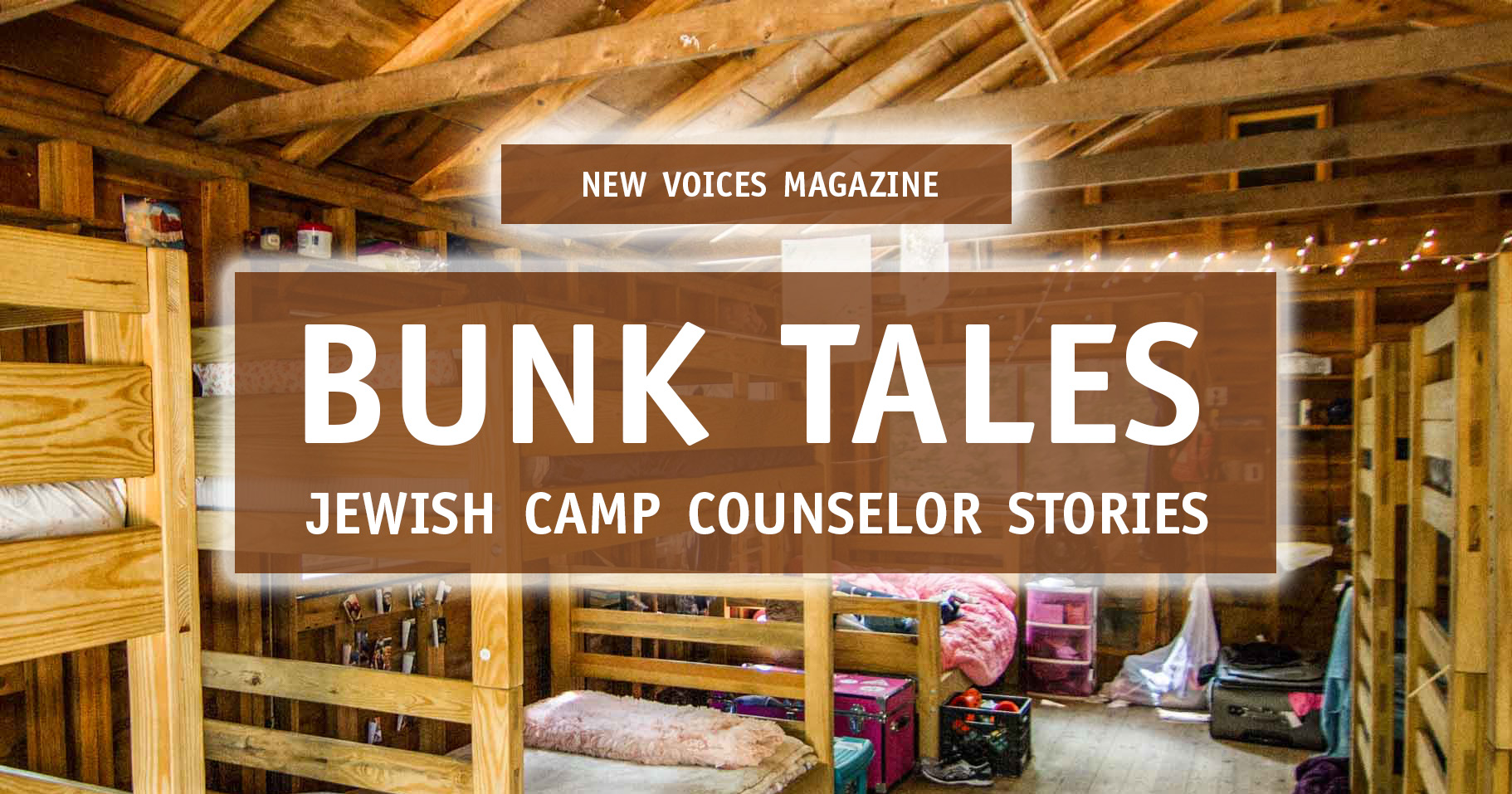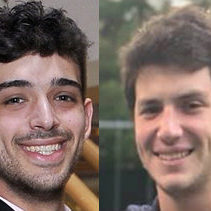As any camp counselor knows, the dream is that every camper in your bunk, age group, or camp community gets along every hour of every day. As any camp counselor knows, this is not the reality. Different age groups throughout camp develop as communities at their own speed, but for people who have been at camp for as many summers as we have, we’d never seen a circumstance quite like ours.
As campers, we were fortunate to share our camp experience together for 6 years. Whether removing a herd of frogs from our bunk at ungodly hours of the night, or weathering hurricane-like storms in the New England wilderness, we became great friends during that time. With the same name, confusion often arose as we were referred to by our counselors as Yoni O. and Yoni G. But coming back on staff, our shared experience lent us the tools to work together as an elite team, the only difference being that our campers called us “Gelbo” and “Yoffit.” As co-counselors, we were lucky to be able to work with the same campers over their final 3 summers at camp (ages 14, 15, and 16), helping shape their experience and impact their social and Jewish lives on an intimate level.
At camp, it’s common to see friend groups form, new kids arrive for their first time, and campers leave without returning. The number of campers in a particular age group changes from year-to-year, typically growing as campers have more meaningful experiences at camp. Our group of campers was unique in many ways, but they stood out from the other Edot (age groups) preceding them as the number of campers decreased in their final 3 summers. Dwindling from 80, to 60, to just over 45 campers in their final two months, it was a distinct contrast to both previous and following summers, where the oldest division averaged 90 campers. This had a dramatic effect on the social dynamic of the group, as well as the self-perception the campers had on their division as a whole.
It was clear from the decline in number of campers that this group struggled with something bigger than just retention. As staff, we are trained to be “social engineers,” tasked with bringing a large group of people together, turning them into one cohesive unit. As they age, campers are tasked with more leadership opportunities and chances to represent their peers in front of the entire camp. It is our job as counselors to put them in the best position to succeed. As they started getting older and the stakes got higher, it became paramount that inclusion and collective participation be at the forefront of their experience.
Starting in 2013, when we were campers in Machon (entering 10th grade), we started a camp tradition where our camp play, a musical production, co-starred campers from both our unit and Amitzim, Camp Ramah’s program for campers with special needs. The Machon-Amitzim play gives campers from both groups a chance to shine through theater, song, and dance. Most importantly, the play is a chance to move beyond the typical day-to-day program and bring campers with different abilities together to share in a meaningful experience.
When we began teaching our campers the songs and dances, many were disengaged. Instead of participating, campers stood in the back of the room, spoke to one another, and some tried to leave the rehearsal altogether. It took immense effort to teach them single lines, and frustrated us as staff, as well as the campers who were giving it their all. For our campers, a group that struggled with inclusion among their peers, we were concerned whether they’d be able to collaborate with a group that they may have seen as “other” in the past. This would be a decisive moment for them personally, and as a group.
Once the Machoners and Amiztimers came together, something shifted in the group, both in their social dynamic and approach to the play. We saw our campers begin to step up and rise to the occasion. Rehearsals began to run far more smoothly, and we were making progress towards our finished product. When the day of the play arrived, all of their hard work showed on camp’s grandest stage. Whether it was a camper physically supporting his co-star, and guiding him through his lines on stage, or watching the entire cast sing their closing number hand in hand before the thunderous applause of the entire camp, we knew in that moment that our campers had learned so much about themselves and creating relationships with people who are different from themselves, a step on their lifelong journey of learning values of inclusion. Several campers even confronted us after the play with intentions of being part of the Amitzim leadership program next summer because of the profound experience they had during the play. On top of that, we were confident that coming together on this occasion would translate to being more inclusive to each other as well. The relationships they built with others who had physical and developmental disabilities created a great show they put on together.
It was a very proud moment for us as counselors when we saw our campers embody what it means to be inclusive. As they transitioned into their final summer at camp, it became clear that they would carry the value of inclusion with them as they continued to grow into strong, young Jewish leaders.
Click here to read more Bunk Tales stories or click here to visit the Bunk Tales Project landing page.

